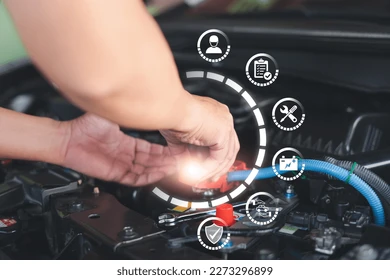Unlocking Engine Potential: Choosing a Reliable Used Car Engine
Why Consider a Used Engine?
In the automotive realm, opting for a used car engine is a decision filled with benefits. Primarily, the cost-saving aspect is a standout feature; purchasing a used engine is significantly more affordable than acquiring a new one. Additionally, the increasing availability of used engines for sale via trustworthy vendors caters to diverse needs, allowing customers to select models that precisely match their vehicle requirements. The positive environmental impact is not to be overlooked. By choosing to reuse engines, you reduce manufacturing demand, thus reducing industrial waste and energy consumption.
Key Factors to Evaluate When Selecting a Used Engine
Purchasing a used engine involves several considerations that ensure you get the best value for your investment. Below are the crucial factors you must evaluate:
- Mileage and Age: There is often a direct correlation between an engine’s mileage and its potential wear and tear. Generally, engines with lesser mileage are less likely to present significant wear-related issues.
- Service and Maintenance History: An engine’s history can tell a comprehensive story about its reliability and longevity. Frequent, routine maintenance indicates a well-cared-for engine, while sporadic service records may flag potential hidden problems.
- Compatibility: It is crucial to ensure that the engine fits perfectly with your vehicle model to prevent performance inconsistencies or functionality issues.
Resources such as Consumer Reports provide exceptional guidance on assessing engine performance, offering comparative analyses to support buying decisions.
Recognizing Engine Wear and Tear
Identifying engine wear and tear early can save you from future expensive repairs. Recognition begins with a preliminary visual inspection.
Visual Inspection Tips
Inspection of the engine for physical signs can avert many issues. Examine the engine’s surface for oil leaks, check for visible rust, and listen for awkward noises during ignition. These small indicators can lead you to more significant issues should they exist.
Platforms like Engineering Explained can enhance your understanding of diagnosing engines effectively, bolstering your inspection skills and confidence.
The Role of Maintenance Records
Maintenance records are vital documents that should never be ignored in the engine purchasing process. They mirror the engine’s upkeep routine and indicate how often necessary replacements were made over its lifespan.
Decoding Service Records
Scrutinize these records to determine the regularity of routine procedures such as oil changes and timing belt replacements. These elements show the engine’s operational reliability and potential longevity under new ownership.
Finding Reputable Sellers and Dealers
The decision to purchase a used engine also hinges on choosing a reputable seller. Building trust with your dealer is key, so thoroughly research their credibility through consumer reviews and testimonials.
Questions to Ask Sellers
Before committing to a purchase, ask pertinent questions. Inquire about warranty options, return policies, and available post-sale support services. This will ensure clarity and transparency, making your purchase more secure.
The Importance of Professional Inspection
Engaging a certified mechanic is a strategic step in purchasing a used engine. These experts perform comprehensive examinations, highlighting problems that might not be visible to the untrained eye. They bring significant knowledge and equipment to the table.
Steps in Arranging an Inspection
Please coordinate with the seller to arrange the mechanic’s inspection at their premises. Certified mechanics utilize state-of-the-art diagnostic tools to analyze engine health thoroughly. This strategic evaluation can save you significant expenses and frustration in the long term.
Understanding Engine Warranties
Warranties are essential when buying a used engine. They offer peace of mind and financial protection. Familiarizing yourself with various warranty arrangements and understanding what they cover is crucial.
Influencing Your Purchase Decision
A solid warranty can significantly influence your buying decision, offering a safety net in case of unforeseen engine issues. Before you purchase, it is critical to investigate the warranty’s scope, duration, and clauses.
Finalizing Your Purchase
When you’re ready to finalize your purchase, negotiation becomes key. Research the fair market price to formulate a reasonable offer. Once both parties agree, ensure all paperwork is meticulously completed to safeguard your interests.
May also read: Crypto Market Down
Arranging Transportation
After the deal, arrange safe transportation for the engine. Consider using reputable auto part transport services that specialize in handling such deliveries to minimize risk and ensure the engine arrives in optimal condition.

